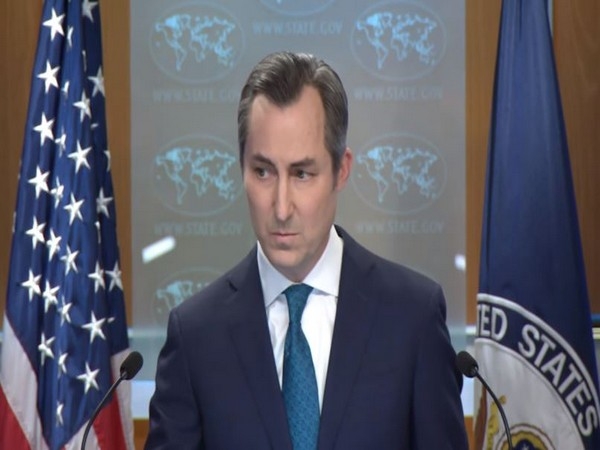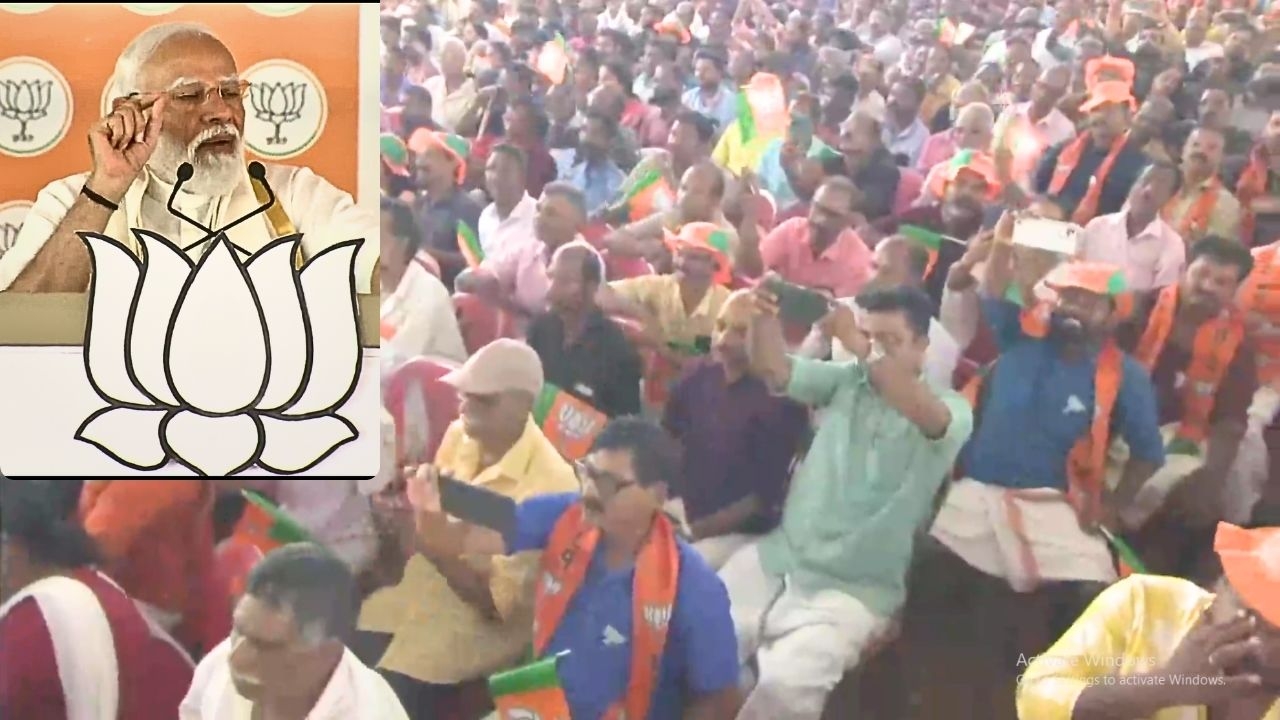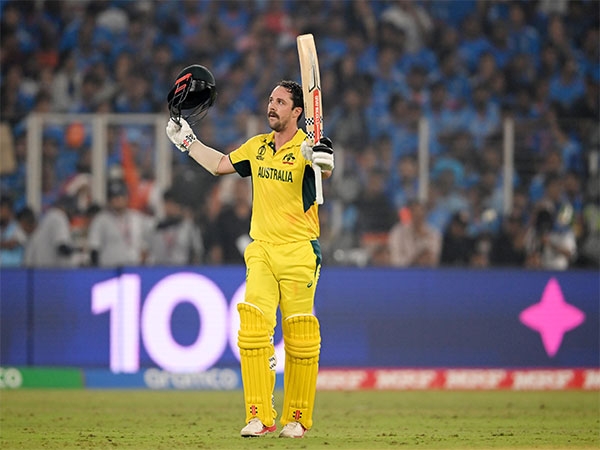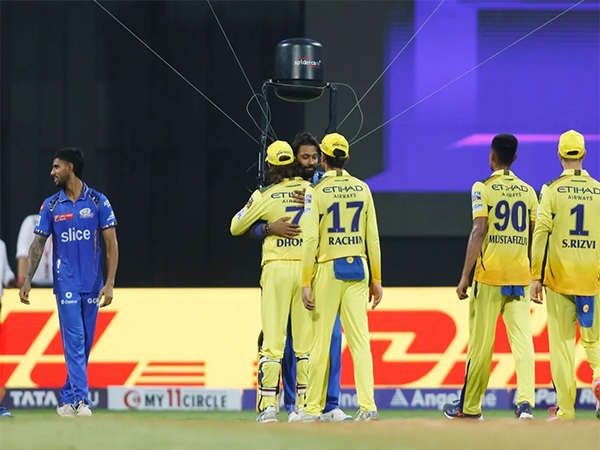Jaitley in Varanasi: BJP brings out its big guns in PM's constituency. Is it worried?
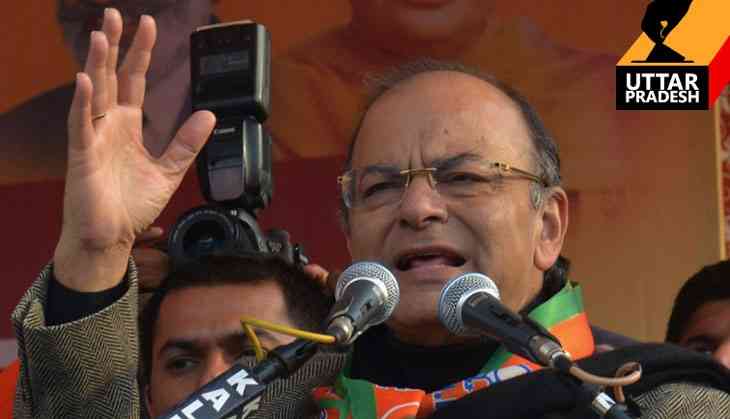
It’s raining ministers in Varanasi. Today, it was Finance Minister Arun Jaitley’s turn to shore up support for his party.
He chose Varanasi to counter the Congress’ charge that the Modi government had fudged GDP figures by not taking into consideration the adverse impact of demonetisation, including job losses and fall in production.
On Friday, Textile Minister Smriti Irani is expected to do her bit for the prime minister’s constituency.
On Saturday, BJP president Amit Shah is expected to address the media. He has taken up residence in Lanka – not Ravan’s Lanka, but a locality of Varanasi.
Also Read: Modi can no longer count on Varanasi youth's support. Here's why
The same day, the prime minister will offer ‘rudrabhishek’ at the Vishwanath Temple and also offer prayers at the Kaal Bhairav temple before addressing a rally.
“The visuals of the prime minister on Saturday will change the shape of this election,” declares a beaming Bhupendra Yadav, BJP general secretary and media in-charge for the elections.
If one were to believe the finance minister, demonetisation has led to a spurt in support for the BJP in Uttar Pradesh. He claimed that the Congress had misread the mood of the country in opposing demonetisation hoping that the poor and the marginalised would get alienated from the BJP.
Jaitley said it should be a matter for pride for all Indians that “our economy has been the fastest growing economy in the world for three years running”. Yet, the Congress seems to be mourning, he said.
“If my revenue figures were going up – you cannot fudge Excise and VAT collections which were increasing -- I had full confidence all along that the economy would do well, I had said so time and time again and now the GDP figures have proven me right,” he said.
This, he said, happened because even during the months when the impact of demonetisation was palpable – October, November and December 2016 – the economy was expanding at a fast rate. “The formal economy was expanding and the black economy was being slowly channeled into the formal sector,” he explained.
He criticised the Congress for trying to “mislead the public” by suggesting that demonetisation would impact the growth rate and that remonetisation would take a long time.
“Exactly the opposite (of what the Congress was saying) has happened. The economy is doing well and the poor are solidly behind us. In UP, therefore, we not only have our traditional vote but now we also have the vote of the poor and the economically deprived,” he said.
Jaitley had come to Varanasi to address the local trading community. He met them last night and apparently pacified them about the income tax queries that some of them had received for depositing large sums of cash in banks in the wake of demonetisation. These are not Income Tax notices but apparently email and SMSs asking for confirmation of large cash depositors whose income profiles do not match the size of the deposits made.
The BJP is playing down these tax queries with claims that the trading community was solidly behind it. The finance minister had apparently conducted a similar meeting with traders in Lucknow before coming to Varanasi.
The BJP, of course, does not want to alienate any sizeable traditional vote bank.
Also Read: UP polls: Facing a tough battle in Varanasi, BJP dials Modi
Most of Jaitley’s ire, however, was targeted at the Samajwadi Party (SP) and the Bahujan Samaj Party (BSP).
“Uttar Pradesh is tired of the two regional parties – SP and BSP – which have governed the state on and off over the last few years. Now the voters are in revolt against these parties and their antics,” Jaitley declared.
He asserted that the results of the UP election would show how politics has changed and how the BJP has expanded its base in UP like never before.
Jaitley’s message was simple. Unlike the BJP, the SP and the BSP thrived on dividing society along caste and community lines so that the supremacy of a particular caste or caste group was maintained in government. “Whenever the SP or the BSP are in power, certain castes enjoyed power while others were alienated and excluded from structures of governance and from government employment,” he argued.
The net result was that large sections of the population did not get justice. These people, Jaitley argued, had rallied behind the BJP in this election.
The ordinary folk of UP, the finance minister said, were also alienated because both the SP and the BSP encouraged people with criminal records in politics because of their caste and community affiliations. “The SP came out against criminals in politics but later embraced the same people and fielded them as candidates The BSP has done the same,” he argued.
Jaitley claimed that this strategy of fielding local bigwigs with criminal records had started giving diminishing returns. “Those who support the BJP’s development agenda and oppose the caste-based policies of the SP and the BSP are today standing with the BJP. Those who were kept out of politics and power because of the structure of these parties are with us today,” he said.
Underlining the importance of the UP election, Jaitley said because of the political weight of the state, the outcome of the election would have a great impact. “A victory for the BJP will prove the popularity of the prime minister, demonstrate that the party has expanded its base and it would reaffirm (the peoples’) faith in the Indian economy,” he declared.
Also Read: Impatient with his ‘alaap’, people waiting for Modi to sing: Sankat Mochan Mahant


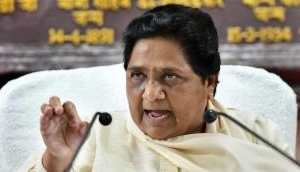
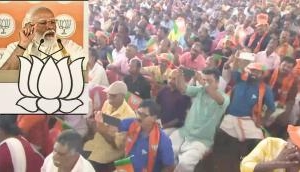
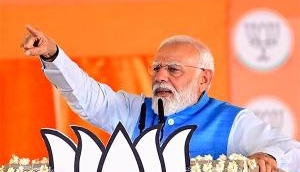
_251267_300x172.jpg)
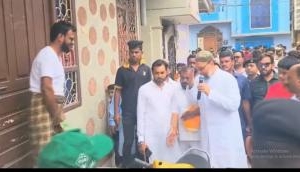
![BJP's Kapil Mishra recreates Shankar Mahadevan’s ‘Breathless’ song to highlight Delhi pollution [WATCH] BJP's Kapil Mishra recreates Shankar Mahadevan’s ‘Breathless’ song to highlight Delhi pollution [WATCH]](http://images.catchnews.com/upload/2022/11/03/kapil-mishra_240884_300x172.png)

![Anupam Kher shares pictures of his toned body on 67th birthday [MUST SEE] Anupam Kher shares pictures of his toned body on 67th birthday [MUST SEE]](http://images.catchnews.com/upload/2022/03/07/Anupam_kher_231145_300x172.jpg)


